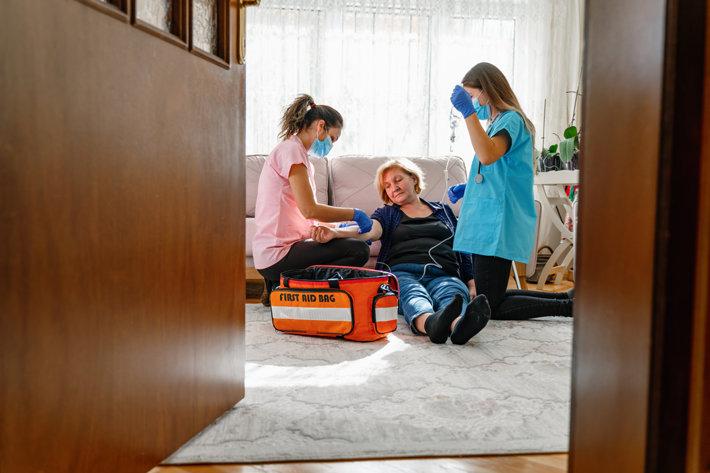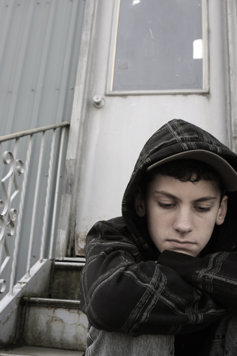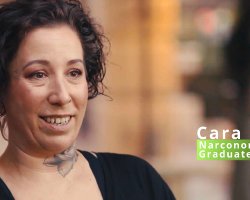Alcohol Consumption Trends During COVID-19

The COVID-19 pandemic has had a profound influence on alcohol abuse trends in the United States. There was a drop in college binge drinking due to fewer students on campus. But overall, there has been an increase in unhealthy drinking at home across all age brackets and demographics.
College Campus Alcohol Consumption Dropped During the Pandemic
Alcohol consumption among college students reportedly reduced during the pandemic. Many college students moved back home with their parents due to campus closures and the transition to online classes. There was a notable drop in alcohol consumption among those students, or at least, so they reported.
In a study published in the Journal of Studies on Alcohol and Drugs, a comparison between pre-closure and post-closure found a significant decrease in:
- The typical number of drinks consumed by students per week (11.5 drinks pre-closure to 9.9 drinks post-closure) and
- The maximum number of drinks consumed per day (4.9 drinks pre-closure to 3.3 drinks post-closure).
- Students who moved back in with their parents voiced the most significant change (13.9 drinks per week to 8.5 post-campus closure).
- The students who moved back in with their parents also significantly dropped their total number of drinks per day (5.4 to 2.9).
- However, students who lived with peers during college closure experienced a surge in drinking days (drinking 3.0 days in any given week pre-closure as opposed to 3.7 days post-closure).
Quoting lead study author, Dr. Helene R. White (a professor emerita with the Center of Alcohol & Substance Use Studies), “Drinking is a social behavior for college students, and without social interaction students are less likely to drink heavily. Living with parents may especially interfere with social interaction with peers and thereby be protective against heavy drinking. Context is an important correlate of pandemic-related drinking. The COVID-19 pandemic is a time of increasing social isolation, which, for college students who move home, provides fewer social opportunities for drinking.”
“Drinking is a social behavior for college students, and without social interaction students are less likely to drink heavily. Living with parents may especially interfere with social interaction with peers and thereby be protective against heavy drinking…”
Students probably decreased their alcohol consumption (by volume and by frequency) once they were away from the college atmosphere and with their families. However, we must keep in mind that the study’s accuracy is based entirely on the self-reported admissions of the college students.
Binge Drinking Increased in the Home During the Pandemic

On the other hand, it is no surprise that at-home drinking across all demographics and age groups skyrocketed. Before the pandemic, binge drinking occurred mostly at clubs, restaurants and bars – and public detoxification and drunk driving acted as deterrents for many people. Then Covid 19 restrictions turned our homes into virtual offices, schools and real bars. Liquor stores were considered “essential,” and predictably, more people started drinking at home.
In fact, at-home drinking drastically spiked, according to a study published in the American Journal of Drug and Alcohol Abuse, 34% of the individuals who participated in the survey for the study admitted to binge drinking during the pandemic (that’s one in three Americans). About 60% of those who already drank to excess admitted to drinking more during the pandemic. About 28% of those who said they did not misuse alcohol before admitted to misusing alcohol during the pandemic.
Furthermore, the longer the pandemic went on, the more people drank. The study found a 1.21 likelihood of binge drinking in any given household with each passing week that the pandemic went on.
Harmful Effects on Children Exposed to Binge Drinking

It will be a while before we fully realize the impact that the Covid 19 pandemic has had on our children. But the circumstances do not paint a pretty picture, especially for those children who have been exposed to binge drinking.
Binge drinking in the home exposes children to harmful behaviors and events that accompany alcohol abuse. According to the National Association for Children of Alcoholics, children who grow up in a home environment where one or more parent is misusing alcohol are more than four times as likely to develop an alcohol addiction than children who grow up with sober parents.
Sadly, according to the National Institute on Alcohol Abuse and Alcoholism, about one in ten children live with a parent who drinks alcohol to excess at home. That number has likely increased during the COVID-19 pandemic.
The Dangers of Alcohol Misuse—It’s a Lethal Issue
Alcohol misuse statistics have increased during the pandemic, creating an epidemic within the pandemic. More people are misusing alcohol more often and consuming greater quantities.
Alcohol abuse harms the family unit (especially children), is extremely dangerous for the alcohol abuser and detrimental to society. According to the same NIAAA document cited earlier, about 95,000 Americans die from alcohol-related causes each year. 68,000 men and 27,000 women lose their lives to an entirely preventable and reversible crisis. And these numbers are undoubtedly higher due to the circumstances of the pandemic. Alcohol misuse is so harmful and prevalent in the United States that it is ranked as the third-leading cause of preventable death in the United States.
Addiction Treatment—The Solution to Breaking Free from Alcohol Addiction
Alcohol addiction and alcohol misuse crises have only worsened during the COVID-19 pandemic. If you know someone struggling with an alcohol problem, please do everything you can to get them help.
Alcohol misuse can be treated with the help of an accredited residential drug and alcohol rehab center. Narconon offers a safe and effective program that helps recovering addicts break free from the trap of alcohol misuse and stay free for life. Call Narconon today to take the first step in helping your loved one break the cycle of addiction.
Sources:
- https://www.jsad.com/doi/full/10.15288/jsad.2020.81.725
- https://www.healthline.com/health-news/more-americans-are-binge-drinking-during-pandemic-how-to-cope-without-alcohol
- https://eurekalert.org/pub_releases/2020-12/joso-cci120820.php
- https://www.tandfonline.com/doi/full/10.1080/00952990.2020.1832508
- http://www.nacoa.net/impfacts.htm
- https://www.niaaa.nih.gov/publications/brochures-and-fact-sheets/alcohol-facts-and-statistics


 ®
®